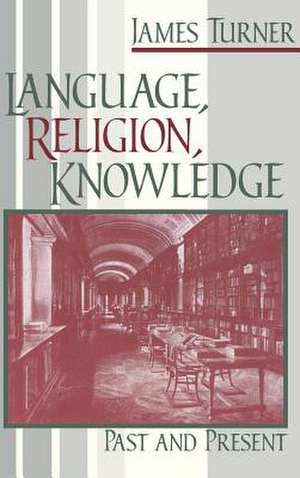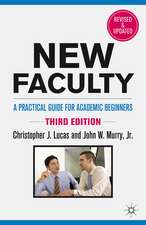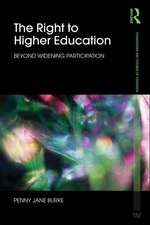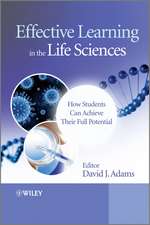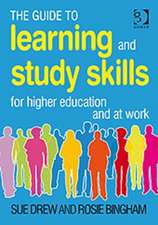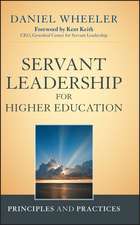Language, Religion, Knowledge – Past and Present
Autor James Turneren Limba Engleză Hardback – 7 ian 2003
Higher education and university-based research rank among the main forces shaping our world. Focusing on knowledge rather than institutions, Language, Religion, Knowledge offers penetrating insight into how higher learning took its present form and the direction in which it is headed. The first section of this remarkable collection probes the history of higher learning in the United States; the second analyzes problems in higher learning today.
Renowned historian James Turner uncovers surprising blind spots in our knowledge of how higher learning has evolved by focusing on four themes: the influence of philology, historicism, disciplinary specialization, and the retreat of religion from the academy. Turner offers an especially interesting discussion of the powerful, yet often unrecognized, impact of the study of texts and languages on knowledge.
These thought-provoking essays examine losses and gains for contemporary higher education resulting from the fading of religion. Turner counts fragmentation of knowledge and the “marooning of research on an island of secular modernity” as among the greatest losses. Yet, he also proposes ways for higher learning today to recover the benefits of religiously grounded thinking without compromising the advantages of secularity.
By demonstrating that religious intellectual traditions can and should reinvigorate the life of the mind, Language, Religion, Knowledge gives new insights into the past and future of higher education.
Renowned historian James Turner uncovers surprising blind spots in our knowledge of how higher learning has evolved by focusing on four themes: the influence of philology, historicism, disciplinary specialization, and the retreat of religion from the academy. Turner offers an especially interesting discussion of the powerful, yet often unrecognized, impact of the study of texts and languages on knowledge.
These thought-provoking essays examine losses and gains for contemporary higher education resulting from the fading of religion. Turner counts fragmentation of knowledge and the “marooning of research on an island of secular modernity” as among the greatest losses. Yet, he also proposes ways for higher learning today to recover the benefits of religiously grounded thinking without compromising the advantages of secularity.
By demonstrating that religious intellectual traditions can and should reinvigorate the life of the mind, Language, Religion, Knowledge gives new insights into the past and future of higher education.
Toate formatele și edițiile
| Toate formatele și edițiile | Preț | Express |
|---|---|---|
| Paperback (1) | 227.48 lei 6-8 săpt. | |
| MR – University of Notre Dame Press – 7 ian 2003 | 227.48 lei 6-8 săpt. | |
| Hardback (1) | 586.01 lei 6-8 săpt. | |
| MR – University of Notre Dame Press – 7 ian 2003 | 586.01 lei 6-8 săpt. |
Preț: 586.01 lei
Preț vechi: 761.04 lei
-23% Nou
Puncte Express: 879
Preț estimativ în valută:
112.14€ • 119.91$ • 93.49£
112.14€ • 119.91$ • 93.49£
Carte tipărită la comandă
Livrare economică 17 aprilie-01 mai
Preluare comenzi: 021 569.72.76
Specificații
ISBN-13: 9780268033569
ISBN-10: 0268033560
Pagini: 218
Dimensiuni: 159 x 235 x 24 mm
Greutate: 0.42 kg
Ediția:1
Editura: MR – University of Notre Dame Press
ISBN-10: 0268033560
Pagini: 218
Dimensiuni: 159 x 235 x 24 mm
Greutate: 0.42 kg
Ediția:1
Editura: MR – University of Notre Dame Press
Recenzii
“The chapters of Language, Religion, Knowledge measure up to the very high standards of clear, expressive, and accessible prose that is a hallmark of James Turner’s writing. This book could become a leading volume in the general consideration of religion and the intellectual life.” —Mark Noll, Wheaton College
“As always, Turner’s prose is steady and genteel, and his own voice comes through in these essays with humor and wit. His introduction and the brief commentaries before each essay tie the book together nicely. Turner demonstrates that solid intellectual history contributes much to our understanding of the past and the present.” —Isis
“Language, Religion, Knowledge is a book that deserves a wide audience among scholars of higher learning in America. It challenges a variety of assumptions about the past and present of the American university and seeks to create a discourse across academic disciplines about its future.” —History of Education Quarterly
Notă biografică
James Turner is emeritus Rev. John J. Cavanaugh, C.S.C, Professor of Humanities at the University of Notre Dame.
Descriere
Descriere de la o altă ediție sau format:
“James Turner’s diptych of interrelated essays—which link carefully wrought episodes in the nineteenth-century past of American higher education with future prospects for the role of religiously rooted inquiry in academic research—shed considerable and often unexpected light on the historically contingent disciplinary distinctions, epistemological assumptions, and research practices of university life today. Turner is not simply a first-rate intellectual historian, but a first-rate intellectual.” —Brad Gregory, Stanford University
“Ever since Cardinal Newman wrote The Idea of a University and George Bernard Shaw quipped that a Catholic university is a contradiction in terms, scholars have quarreled about the relation between knowledge and belief. In Language, Religion, Knowledge one of the most erudite of American historians explores topics ranging from the intricate connections between philology and historicism to the ironic consequences of secularization for higher education. All readers will benefit from pondering James Turner’s provocative ideas about the role religion has played—and the role Catholicism should play today—in educational institutions and in American culture more broadly.” —James T. Kloppenberg, Harvard University
“The chapters of Language, Religion, Knowledge measure up to the very high standards of clear, expressive, and accessible prose that is a hallmark of James Turner’s writing. This book could become a leading volume in the general consideration of religion and the intellectual life.” —Mark Noll, Wheaton College
